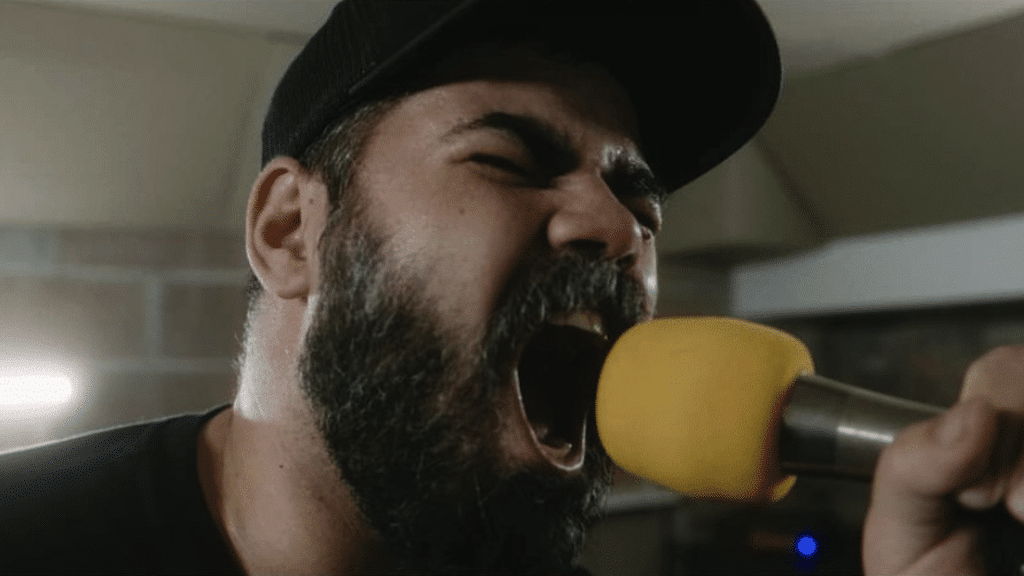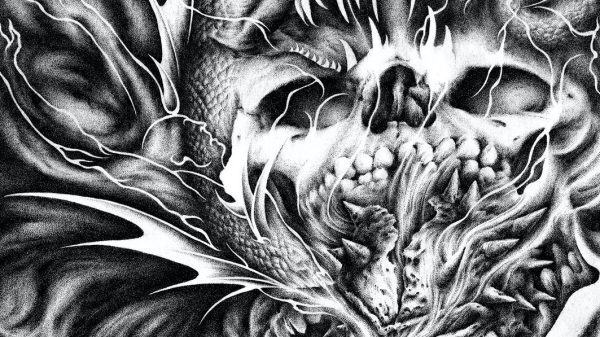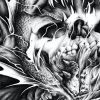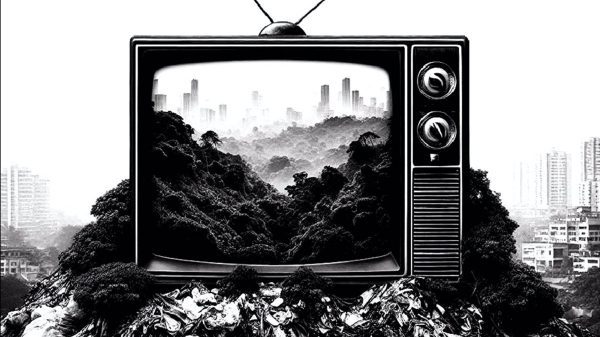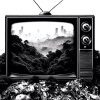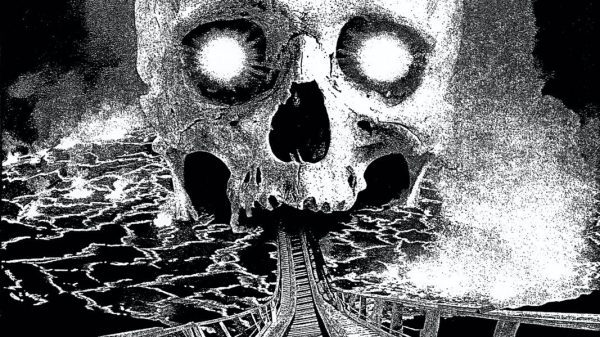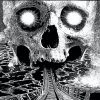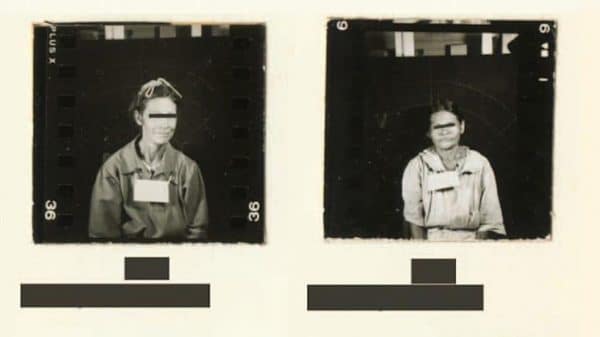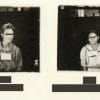La Milagrosa’s insanely powerful record “Pánico” comes out January 28, 2022, via Iron Lung Records.
La Milagrosa is: German – vocals, Roberto – guitar, KC – Bass, Eduardo – drums
What two historic events or political movements have made an impact on your band?
German: I will say Hurricane Maria was the main reason for Roberto and me to leave the island (Puerto Rico) in 2017. Sadly, if it wasn’t because of the hurricane, we probably never ended up making music and playing together in La Milagrosa. The second movement, in my opinion, that had an impact on the band was the “Ricky Renuncia” movement, where the people took the governor out of his chair after a leaked chat showed the world the big piece of shit he was, and still is. That was more fuel to the fire for us to make more music.
Eduardo: The “War on drugs” which is more like the “War against the drug users.” I know from my own experience how difficult is to get out and win the battle when the government treats you like a criminal, the health industry treats you like a client, and society treats you like a failure. La milagrosa gave me a platform to express myself and yell my frustrations and maybe help somebody with the same problems to not feel like they are alone.
Give us the science behind the title and artwork of your new album, Pánico?
Eduardo: (Front) We asked the artist to represent a panic attack and he came out with this awesome art.
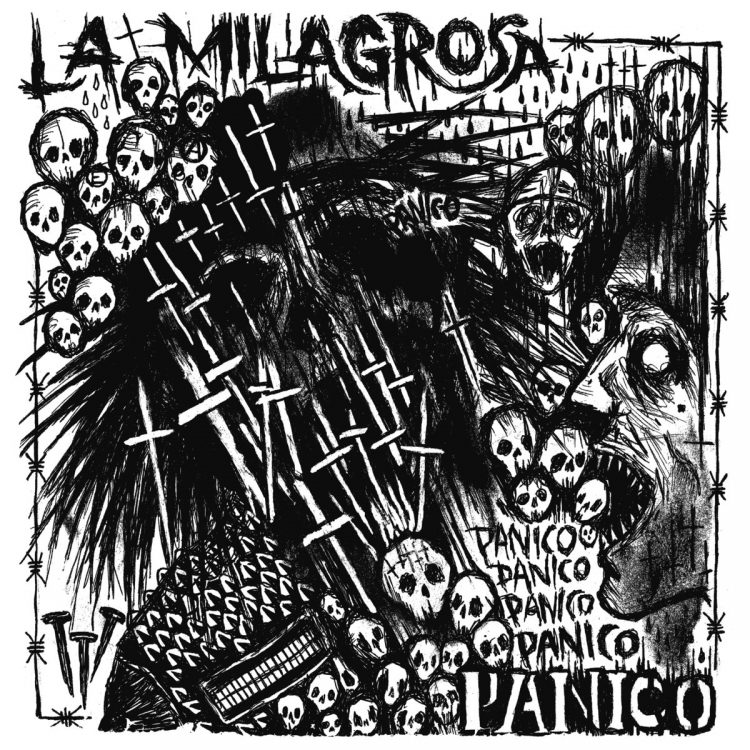
(Insert) The virgin mary represents the Pharmaceutical industry: just like religion, they create the sickness so they can send you the cure.
Roberto: (Back) The “Official” death toll after Hurricane Maria hit the island, Donald Trump throwing paper towel rolls at the people of Puerto Rico as if he was shooting hoops at the county fair to win a plushy for his girlfriend (fucking ridiculous!!!), the police in riot gear ready to act as the repressive hand of the state.
Pánico Art by Robin, Amanda Pelaez, Dhania Martinez and German Troche.
German: (Title) Pánico is a feeling that we as Puerto Ricans are familiar with from the day we were born, it’s almost in our DNA. Being born on an island where we are taught to be comfortable with the breadcrumbs the US Government threw at us while our people die fighting their wars and are used as their guinea pigs (Agent Orange, contraceptive tests, Culebra being bombed by the military), where half of the year is hurricane season, where the lack of electricity seems to be normal, where corruption is accepted—these are some of the most stressful environments a human being can experience. Also, most of the songs on the album were written and recorded during the beginning of the pandemic, where most people were panicked because of the uncertainty of what was happening.
Describe three of your songs in terms of your favorite foods, and tell us how these songs will feed our souls?
Eduardo: I would say most of our songs are like those vegetables that are really hard to swallow but that your body needs to be able to heal.
The system has been molded by the white and rich to keep us poor, ignorant, and afraid. The solution is to look out for each other, educate ourselves and others, and fight the power.
How do y’all feel that isolation has benefited the NYC Punk scene?
Roberto: It definitely made bands more productive and not only that, but it also created a lot of new bands, so it definitely pushed people to be creative. With so much crazy shit going on right now all around the world, there is a lot to say and a lot to draw inspiration from.
German: Is there something good about this shit storm?
KC: I feel like isolation was both a blessing and a curse.
Take us back to your childhood—what music did you hear around your home or booming out of the cars in your hood?
KC: During my childhood, I mostly heard Rap, RnB, Funk, and Disco in my house and neighborhood. The only time I heard Punk around that time was in video games, but I didn’t know what Punk was at that time.
German: Mostly merengue and underground rap music. You can go from “Suavemente besame que quiero sentir tus labios besandome otra vez” (Kiss me slowly so I can feel your lips) to “Maldita puta, maldita Bellaca, se la pasa toda la vida saboreando Matraca” (fuckin bitch, fuckin ho, she spend all her life sucking cock) back to back on a Sunday morning. Music in the ’90s was wild in PR.
Roberto: Salsa, merengue, “Underground” or reggaeton, my grandma listened to a lot of bolero.
Eduardo: Bolero, salsa, rap, hip hop.
What role do the ancestors play in the way you see the world, and how do they impact the way you create?
KC: Not just my ancestors, but people of the past whether I knew them or not, they made me realize that even though they’re gone, the art that they created will forever be immortalized for the world to see. Their art proves that they once existed and that’s what I want to achieve myself.
Roberto: I guess it would have to be in the way growing up in a small place with such an intense environment, it gives us our attitude and our way of seeing the world and everyday life situations.
German: Those who do not remember the past are condemned to repeat it. Our ancestors are always present when we create our music. “Asesinos” is a song about the Spanish invasion of Puerto Rico during the 1500s.
What four albums have had a major impact on y’all’s creative spirit? Each of you pick one.
Eduardo: Napolnariz Todos terminamos igual (Frente Norte’s singer old band);
KC: Bad Brains Rock for light
Roberto: Eskorbuto Los demenciales chicos acelerados
German: El fantasma antillano by Tropiezo had a “before and after” effect in my life.
If three of your songs from Pánico were placed in a time capsule to be opened 60 years from now, what songs would you put in there, and why?
Eduardo: “Mi casa no es su casa” and “Tiembla la tierra” because they sum it up what are we living in 2022
Roberto: “Asesino,” “Tu Recuerdo,” “Podrido.” Cause they slam.
German: “Nos quisieron enganar,” because it was our first song we wrote together, “Tu recuerdo,” because it’s an ode to friends we all have lost during the way, and “Asesinos,” because yeah, you can’t erase 500 years of colonization just like that.
Y’all have a strong sense of self when it comes to your creative vision. What life experiences helped shape your new album?
Eduardo: In my case having lost everything, and having to move and start from scratch in a place where I basically don’t know anybody.
German: Moving to NYC, being in a place you have never been before, and seeing how hard it is to try to move forward in life definitely helped me write this album. I personally like to write about stuff I have lived or that had an impact on my life or the people around me.
Pánico as a weapon of mass change—what impact do you want to see it have on culture?
German: I want Pánico to be the anthems or soundtrack for future rebellions.
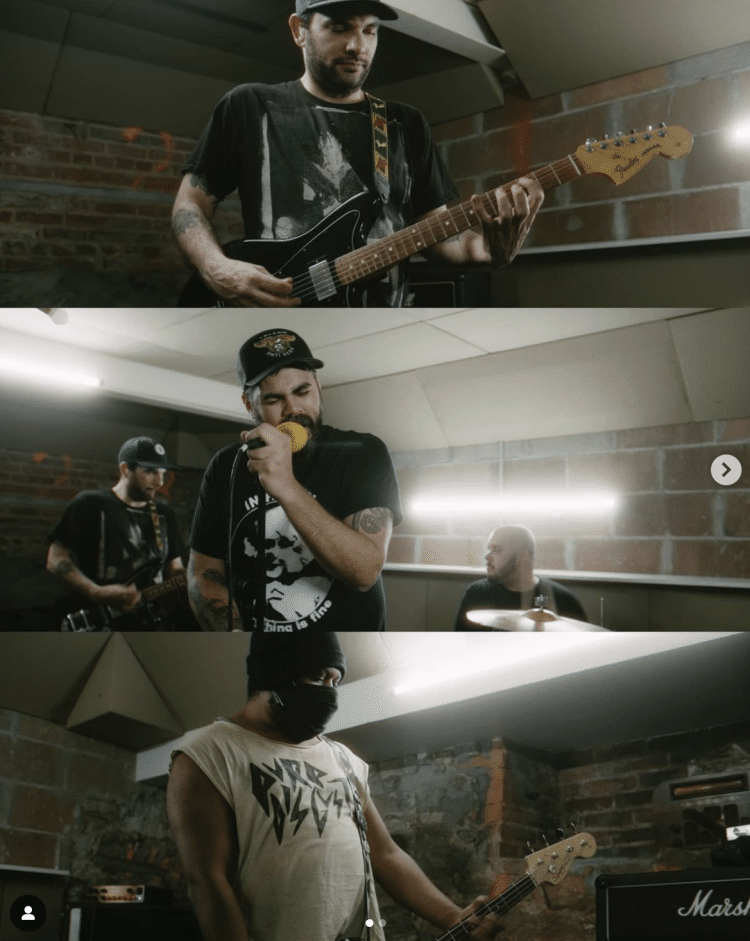
How do you see the intersection between slavery, the destruction of generational wealth, housing segregation/redlining, underfunded Black and Brown schools, and the prison industrial complex reflected in our communities today? What solutions appeal to you?
Roberto: It’s all systematic, it’s embedded and encrypted in the laws and procedures of this country, so sometimes it’s hard to pinpoint the source. But all of these things, from the destruction of generational wealth, housing segregation, and underfunding of Black and Brown schools are all systems put in place to keep minorities cornered in their own small areas so that they don’t look for or have access to better opportunities or growth of any kind. It all results in the same thing, which is economical slavery, the process of growing up, going into debt, going to work to pay for your debt, and repeat until the day you die.
Eduardo: The system has been molded by the white and rich to keep us poor, ignorant, and afraid. I think the solution as minorities is to look out for each other, educate ourselves and others, and fight the power.
Talk to us about the bond of friendship that runs through La Milagrosa, and how that translates into the way y’all create together?
German: We look out for each other.
Eduardo: We were friends before, now we are family
How old were y’all when you first realized that the Police weren’t looking to serve or protect you as young People of Color?
Eduardo: 16 years old. Me and my friend who’s from a good family were arrested. They let him go when he said his last name. I stayed in jail.
German: Since middle school, being a person of color on a skateboard means you’re fresh meat for starving pigs.
I wanted to get your take on defunding or abolishing the police. How do you think it could benefit your community?
Roberto: Abolish… Let’s organize as communities and abolish the police.
Eduardo: Police have way more resources than they need and they use them to oppress us. Abolish and give that money for education and health.
German: Abolish, even though I think the first step has to be defunding the police and reinvesting in minority groups.
What are some POC-owned Businesses in New York and Brooklyn we should know about?
Eduardo: 1. Planeta Destrozado: they are a label that is dedicated to sharing records for bands from Latin America who otherwise wouldn’t have the exposure, they also give the proceeds to different charities and causes that those bands support.
2. Venas Bronx: more than a record store, it’s a cultural and a safe space for minorities.
3. MedioPocilloRecords: because its my fucking label.

